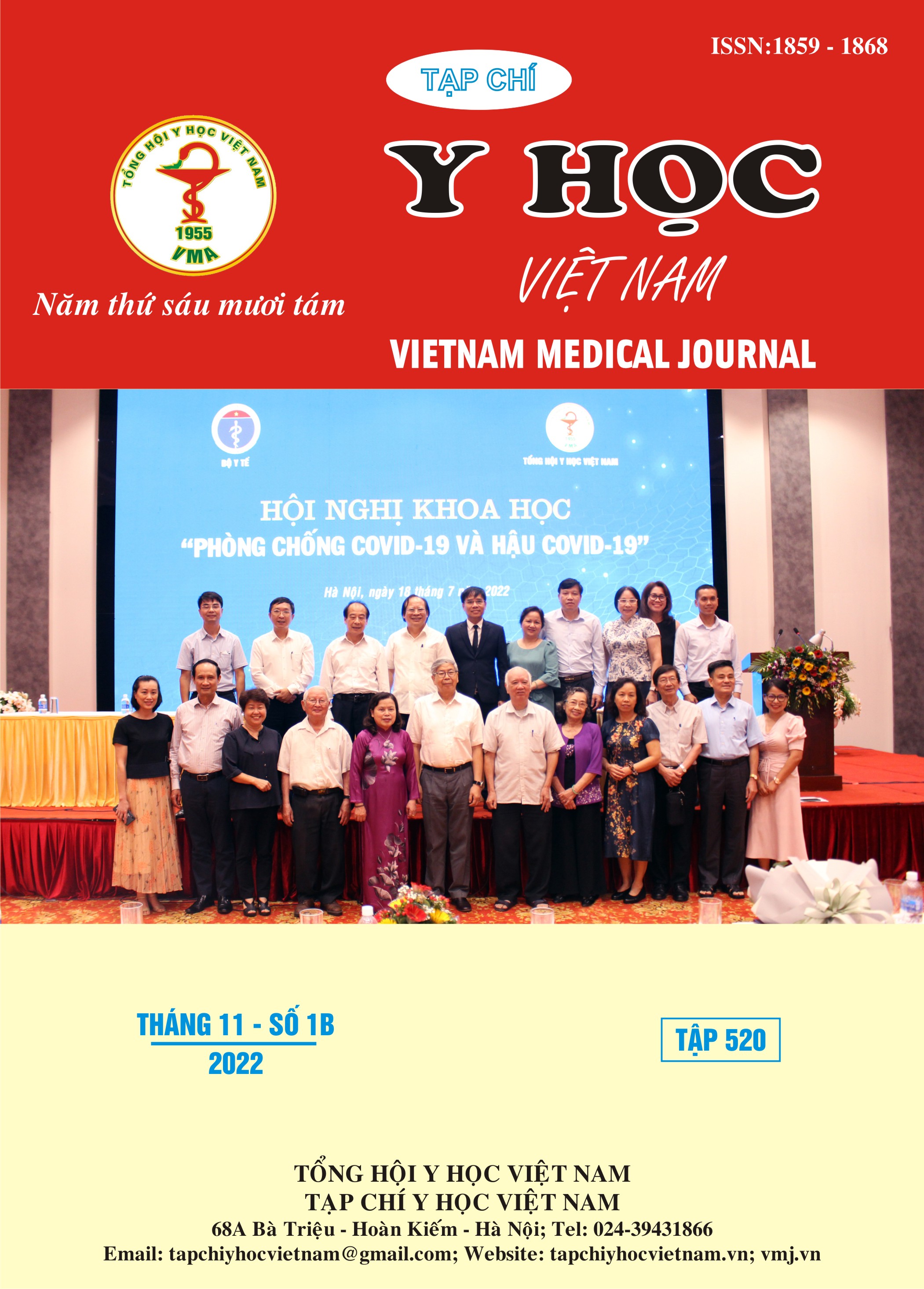ASSESSMENT SURVIVAL RESULTS OF TREATMENT GASTRIC CANCER BY PERIOPERATIVE CHEMOTHERAPY FOLLOW BY GASTRECTOMY AND D2 LYMPHADENECTOMY AT THE OPTIONAL DEPARTMENT K HOSPITAL
Main Article Content
Abstract
Purpose: Evaluation survival outcomes and rates of complications of perioperative chemotherapy follow by gastrectomy with D2 lymphadenectomy for locally advanced gastric cancer. Subjects: Patient was diagnosed with locally advanced stage gastric carcinoma receiving perioperative chemotherapy follow by gastrectomy with D2 lymphadenectomy at Optional department K Hospital. Result: Mean age was 58.1 ± 9.1 years old, male/female ratio was 1.8. Tumor location: pyloric accounted for 69.0%, body accounted for 16.7%, cardia and fundus accounted for 14.3%. The rate of T3 accounted for 11.9%, T4 accounted for 88.1%. The rate of lymph node metastasis accounted for 66.7%. Macroscopic tumor clasification: ulcer 59.5%, polypoid 4.8%, diffuse or diffuse ulceration 35.7%. Histopathology: poorly differentiated or ring cells carcinoma accounted for the highest rate with 42.9%, moderately differentiated carcinom accounted for 38.1%, highly differentiated carcinoma accounts for 19.0%. Treatment results: Assessment of response after 4 cycle FLOT preoperative chemotherapy based on imaging and endoscopic reached 61.9%, based on assessment of intraoperative lesions reached 83.3%. No patient achieved a clinical complete response, the histopathological complete response rate was 4.8%. No patient progressed to change treatment regimen, however, in intraoperative assessment, 16.7% of patients did not respond. The overall complication rate was relatively low, no patient died or re-operated in the first 30 days, there were no cases of postoperative bleeding complications, postoperative anastomosis leak, posoperative intestinal obstruction, narrow anastomosis. There were no cases of liver or kidney failure after surgery. There were 2 cases of postoperative pneumonia, accounting for 4.8%, and 2 cases of postoperative wound infection. The mean follow-up time was 28.6 months. The disease-free survival rate at the end of the study was 50% and overall survival was 66.7%
Article Details
Keywords
Gastric cancer, preoperative chemotherpy, D2 lymphadenectomy, rate of complications, survival.
References
2. Cunningham D, Allum WH et al. Perioperative Chemotherapy versus Surgery Alone for Resectable Gastroesophageal Cancer. N Engl J Med. 2006;355(1):11-20.
3. Al-Batran SE, Homann N, Schmalenberg H et al. Perioperative chemotherapy with docetaxel, oxaliplatin, and fluorouracil/leucovorin (FLOT) versus epirubicin, cisplatin, and fluorouracil or capecitabine (ECF/ECX) for resectable gastric or gastroesophageal junction (GEJ) adenocarcinoma (FLOT4-AIO): a multicenter, randomized phase 3 trial. Proc Am Soc Clin Oncol. 2017; 35:4004.
4. Japanese gastric cancer association. Japanese gastric cancer treatment guidelines 2018 (5th edition), English edition. Gastric cancer. 2021; Jan;24(1):1-21.
5. Karen Becker, James D. Mueller, Christoph Schulmacher et al. Histomorphology and grading of regression in gastric carcinoma treated with neoadjuvant chemotherapy. Cancer. 2003; 98:1521-30
6. Sun M-M, Fan Y-Y, Dang S-C(2018). Comparison between uncut Roux-en-Y and Roux-en-Y reconstruction after distal gastrectomy for gastric cancer: A meta-analysis. World journal of gastroenterology;24(24):2628-2639.
7. Li FX, Zhang Rp Fau - Zhao J-z, et al (2011). Use of uncut Roux-en-Y reconstruction after distal gastrectomy for gastric cancer. (1671-0274)
8. Mitsuru Sasako, Park JY, Kim JY. Progress in the treatment of gastric cancer in Japan over the last 50 years. Ann Gastroenterol Surg. 2020 Jan; 4(1): 21–29.


